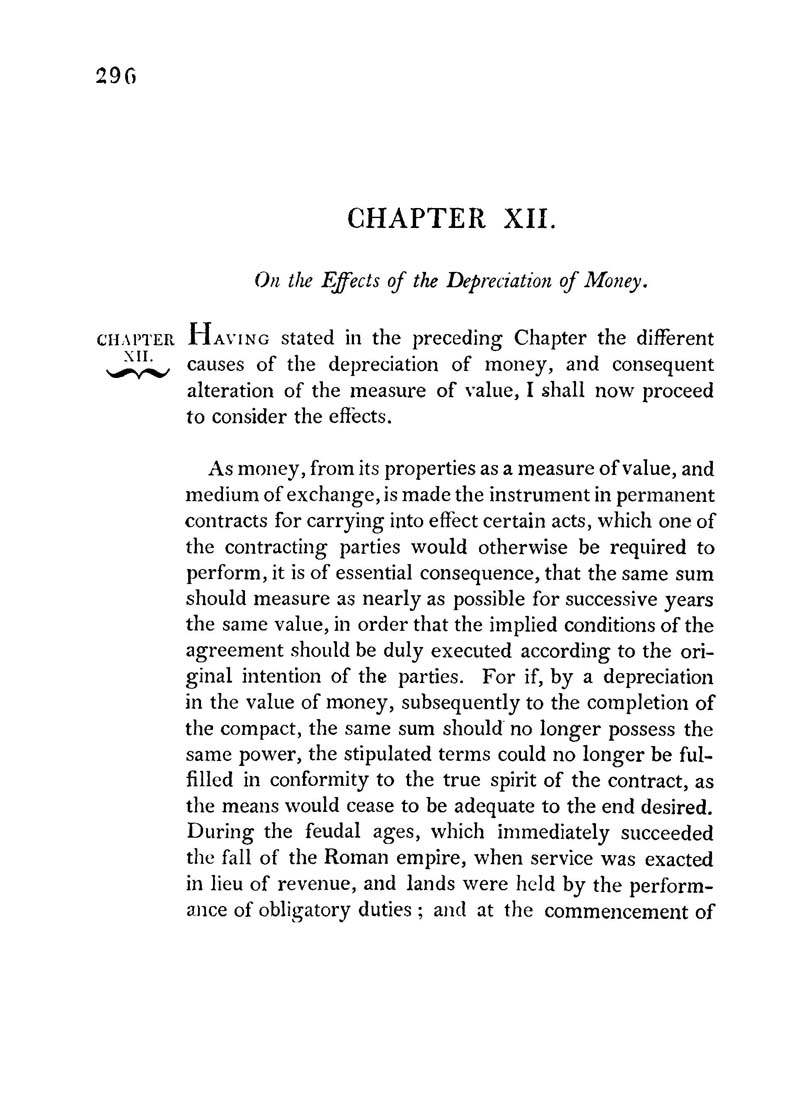290
CHAPTER XH.
On the Effects of the Depreciation of Money,
CHAPTER riAviNG Stated in the preceding Chapter the difl^erent
^^^* causes of the depreciation of money, and consequent
alteration of the measure of value, I shall now proceed
to consider the effects.
As money, from its properties as a measure of value, and
medium of exchange, is made the instrument in permanent
contracts for carrying into effect certain acts, which one of
the contracting parties would otherwise be required to
perform, it is of essential consequence, that the same sum
should measure as nearly as possible for successive years
the same value, in order that the implied conditions of the
agreement should be duly executed according to the ori¬
ginal intention of the parties. For if, by a depreciation
in the value of money, subsequently to the completion of
the compact, the same sum should no longer possess the
same power, the stipulated terms could no longer be ful¬
filled in conformity to the true spirit of the contract, as
the means would cease to be adequate to the end desired.
During the feudal ages, which immediately succeeded
the fall of the Roman empire, when service was exacted
in lieu of revenue, and lands were held by the perform¬
ance of obligatory duties ; and at the commencement of
|








